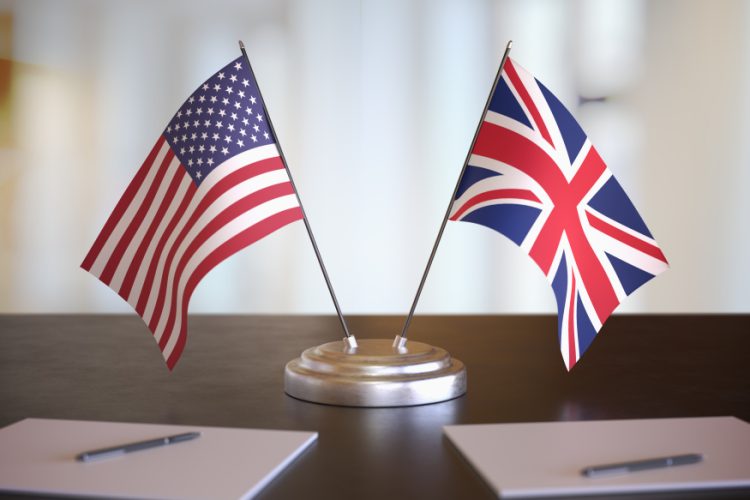UK and US agree historic trade deal: implications for food industry
Posted: 9 May 2025 | Ben Cornwell | No comments yet
The UK and US have struck a historic trade deal, reshaping food exports and standards with lasting impact on agriculture sector.


The UK and the US have signed a historic trade agreement that promises to reshape the future of the food and agriculture sectors on both sides of the Atlantic.
Under the deal, UK beef farmers will gain exclusive, tariff-free access to the US market for the first time, while US agricultural exports to the UK, including beef and ethanol, will see significant growth.
UK Prime Minister Sir Keir Starmer described the deal as a “win for both nations” that would benefit workers and businesses across the UK and the US.
He commented:
This is going to boost trade between and across our countries. It’s going to not only protect jobs, but create jobs, opening market access.
I know people along the way were urging me to walk away, to descend in a different kind of relationship.
We didn’t. We did the hard yards. We stayed in the room. I’m really pleased to say to the workforce here and through them to the country, how important I think this deal is.”
The agreement allows the UK to export 13,000 metric tonnes of beef tariff-free to the US, marking a significant victory for UK farmers who have long sought access to one of the world’s largest beef markets. In return, the UK will remove a 20 percent tariff on US beef imports, along with lifting tariffs on US ethanol used in brewing and bioethanol for fuel.
US President Donald Trump also welcomed the deal, particularly its impact on US agriculture:
The deal includes billions of dollars of increased market access for American exports, especially in agriculture, dramatically increasing access for American beef, ethanol, and virtually all of the products produced by our great farmers.”
Is hormone-treated beef and chlorinated chicken permitted under the deal?
However, one of the most significant aspects of the agreement is the UK’s unwavering commitment to maintaining high food standards, particularly in regard to the controversial issues of hormone-treated beef and chlorinated chicken. Both remain illegal under UK law, despite pressure from US agriculture to allow these imports.
Asked directly on whether he would like US hormone-treated beef and chlorine-washed chicken permitted under the deal, Mr Trump said US agriculture was big enough to provide whatever sort of product the UK wanted.
Defra Secretary Steve Reed reinforced this point on a post on X, stating:
Imports of hormone treated beef and chlorinated chicken remain illegal. Any agricultural imports coming into the UK will have to meet our high food (SPS) standards.”
He added that the deal’s beef export provisions were a major boost for British farmers:
For the first time ever, this deal will open up exclusive access for UK beef farmers to the US. This is a major opportunity for British farmers to increase their exports to the world’s largest consumer market, helping them to grow their businesses.”
Food industry reacts
While the deal has been hailed as a breakthrough for UK food exports, particularly beef, there are mixed reactions from industry leaders, who have expressed both optimism and concern over the potential impacts on the wider agricultural sector.
Tom Bradshaw, President of the National Farmers Union (NFU), welcomed the opportunity for UK beef farmers but raised concerns about the inclusion of US bioethanol imports in the deal.
We appreciate the government’s efforts in listening to our concerns, particularly around maintaining high standards, protecting sensitive agricultural sectors, and securing reciprocal access for beef.
For several years, we’ve campaigned with the UK’s agricultural attachés in Washington for market access for British beef, a product globally respected for its quality and strong environmental credentials.
These efforts have contributed to enabling the UK Government to secure ring-fenced access for British beef exports to the US.
However, the inclusion of a significant volume of bioethanol in the deal raises concerns for British arable farmers.”
Bradshaw also cautioned that UK agriculture must not be expected to shoulder an unfair share of trade-offs in future negotiations. He warned that two agricultural sectors had already been singled out to carry the burden of tariff removals benefiting other parts of the economy and stressed that such imbalances could not continue in future negotiations.
Jim Moseley, CEO of Red Tractor, echoed similar concerns, emphasising the importance of safeguarding UK food standards:
The standards which farmers and manufacturers produce food to in the UK set us apart from the rest of the world.
The UK Government must continue to defend UK food standards and farmers by ensuring any products entering the UK market do not undercut the high standards of British produce that consumers come to expect”
Lucrative opportunity for UK and US farmers
Despite these concerns, the deal is expected to open up significant opportunities for British farmers, particularly those in the beef sector. The US is one of the world’s largest beef markets, and UK beef exports have long been excluded due to stringent import regulations. Now, with the new agreement, British producers will have a dedicated quota for beef exports to the US, which could prove lucrative for the sector.
The US Department of Agriculture has estimated that the deal could result in $5 billion in new export opportunities for US agricultural producers, including $700 million in ethanol exports and $250 million in beef exports. The expanded market access will be a significant boon for American farmers, particularly in areas such as beef and ethanol production.
As the deal moves into its implementation phase, the UK food industry will continue to monitor the impacts, particularly in the beef and bioethanol sectors.
While the trade agreement is a clear win for the UK’s beef producers, as industry leaders have warned, careful management will be needed to ensure that UK standards remain protected in future trade deals.
Related topics
Food Security, Regulation & Legislation, Trade & Economy, World Food
Related organisations
Department for Environment Food and Rural Affairs (Defra), National Famers’ Union (NFU), Red Tractor









